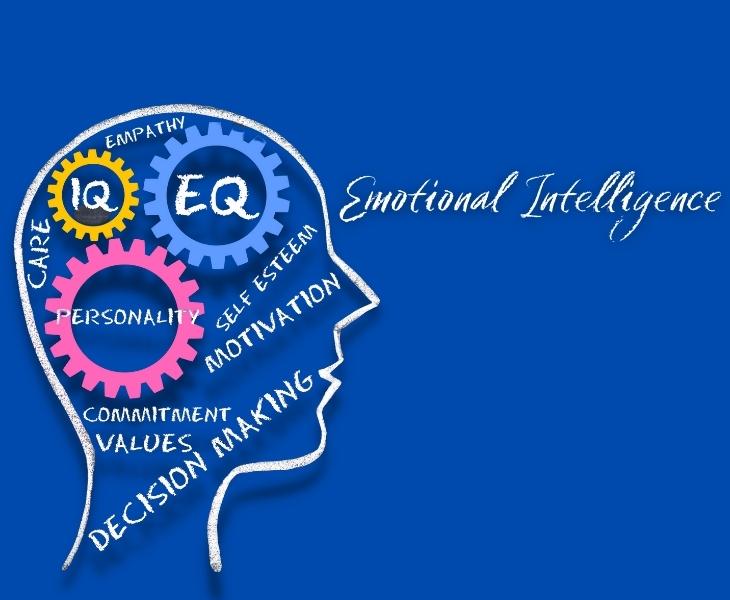What is Emotion Intelligence?
“Did you know that having a high emotional intelligence is a better predictor of effective teamwork than having a high IQ?” Despite its importance, organisations expect employees to leave their emotions at the door, creating an unhealthy divide between being human and being productive.
As a result of undervaluing empathic employees, valuable soft skills like emotional intelligence—which leads to increased team productivity, connection, and trust—are often overlooked. Recently, more and more businesses are embracing qualities such as openness and active communication, recognising the value of these skills in boosting employee productivity. Emotional intelligence does not mean being “nice” or accommodating; rather, it refers to being aware of how one’s emotions influence one’s thoughts, speech, and actions in the workplace.
Employee happiness can be impacted by burnout, miscommunication, and workplace conflicts, which can even affect the overall turnover. How can this be avoided? The American Journal of Pharmaceutical Education shows that a high level of emotional intelligence in the workplace improves one’s ability to make sound decisions, build and sustain collaborative relationships, deal effectively with stress, and cope to a greater extent with constant change. In summary, cultivating a culture of emotional intelligence is the first step in creating a happy and thriving workplace.
Emotional intelligence in the office
Here‘s how emotional intelligence positively impacts the workplace.
Healthier Working Environment
Employees who are better at managing their emotions have a more efficient workplace, with increased emotional awareness and stronger relationships. On the other hand, passive-aggressive employees who constantly criticise one another creates an unbalanced working environment. When employees respect and get along, the company culture becomes much bigger and more powerful. Furthermore, the office becomes a place where people enjoy their work and the company of their coworkers. A more positive, compassionate, inclusive, and harmonious workplace is a huge advantage for employee recruitment and retention.
Culture of Compassion
Service-oriented and empathetic organisational leaders and employees foster a compassionate work culture in which everyone feels valued and appreciated. This type of culture benefits employees’ emotional health and well-being while also driving productivity and outcomes.
Improved Workplace Productivity
Productivity is boosted in an environment where everyone is encouraged to think about their emotions rather than acting on impulse. Emotionally intelligent employees value their coworkers’ input and ideas and are more likely to trust them. They are considerate, thoughtful, and respectful when working in a team, which increases productivity, boosts confidence, and fosters a happy working environment.
More Self-Awareness
Employees with high levels of emotional intelligence are self-aware, meaning they better understand their own strengths and weaknesses. They can positively take feedback, which can help them advance in their careers and improve as individuals. They can also better assess what they can take on and accomplish in a given amount of time. Contrast this with employees with lower EI levels; they can find themselves unable to recognise constructive feedback from their managers; instead, they become defensive, causing frustration and impeding productivity. As they are unaware of their own strengths and weaknesses, leading them to overpromise and/or underdeliver.
Increased Self-Control
Employees who have better self-control are valuable assets to any company. Everyone experiences bad moods, impulses, and negative emotions such as anger and stress, but people with high EQ learn how to control these emotions rather than letting them control them. When difficult circumstances arise, whether, with coworkers, clients, or other stakeholders, these employees demonstrate the ability to work calmly under pressure and control disruptive emotions, thereby preventing potential workplace relationship damage.
Reduced Stress
Job-related stress is unavoidable, whether it’s due to tight deadlines, a heavy workload, or miscommunications; however, according to research from the International Journal of Organizational Analysis, people with higher emotional intelligence are less stressed in the workplace. As a result, rather than crumbling under pressure or allowing minor hiccups to adversely affect an entire project, these supervisors and employees demonstrate emotional self-control and resiliency, allowing them to confront and overcome obstacles with greater confidence and calmness. Furthermore, research suggests that emotional intelligence (EI) is a predictor of overall wellness and mental health, which contributes to a happy and healthy workforce.

